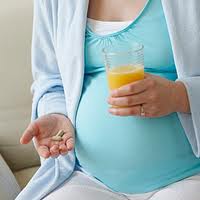The most important point to be considered when medicating children is the dosage. Always keep the following in mind:
- A child is not a small adult. So their dosage cannot be calculated directly. Dosages of medicines vary widely in children, and are based more on their weight than their age.
- Never self medicate your child. If you think that the existing dose is not bringing adequate effect, DO NOT increase the dose on your own. Chances are that something else is wrong or he needs another medicine.
- Do not try to coax your child into taking medicine saying it is a sweet treat or chocolate. In your absence, the child may remember what you said and consume dangerous amounts.
- Do not treat medicines lightly, by keeping it in the open, or hiding it when your child is watching. The kid will be inquisitive enough to find it out and try to consume it when you are not around.
- Follow strict instructions for doses. A teaspoon is different from a tablespoon. A teaspoon is the small spoon used for salt, etc. A tablespoon is much larger, close to a soup spoon in size. A slightest difference in doses (2-3 ml) can bring about significant adverse effects in children below 3 years of age.
- Keep your medicines also away from the kid. He might be inquisitive to know what you are eating, and if it is better than his, which is a dangerous experiment.
Taking medications when Pregnant/ Breastfeeding
- Remember that all drugs will cross the placenta to pass through to the baby, so as a matter of precaution it is important that NO MEDICATION IS CONSUMED WITHOUT CONFIRMING WITH YOUR DOCTOR.
- In general, try to take minimal medication during pregnancy, especially for minor ailments. The temporary discomfort will not be as serious as the possible effects on the baby in case of drug reactions.
- In any problem, be sure to consult your doctor before you take even any OTC drug, as unexpected side effects may occur even with these.
- When you are breastfeeding your child, remember that the medicines can pass through breast milk too, so do not take any medications by yourself. If you already have, then observe the baby closely for any possible side effects like rashes, and breathing problems after having breastfed him. Report to the doctor immediately.
Some common interactions are-
- Dextromethorphan commonly found in cough syrups reacts with MAOI- a type of antidepressant, to produce side effects.
- Painkillers are capable of causing gastrointestinal bleeding in old age. Do not consume painkillers for more than 2 times a day, continuously for 3-4 days without consulting your doctor.
- A lot of medications are likely to interact with blood pressure medicines, and anti-diabetic drugs specially in old age. So it is important to tell your doctor if are taking any such medications.





No comments:
Post a Comment